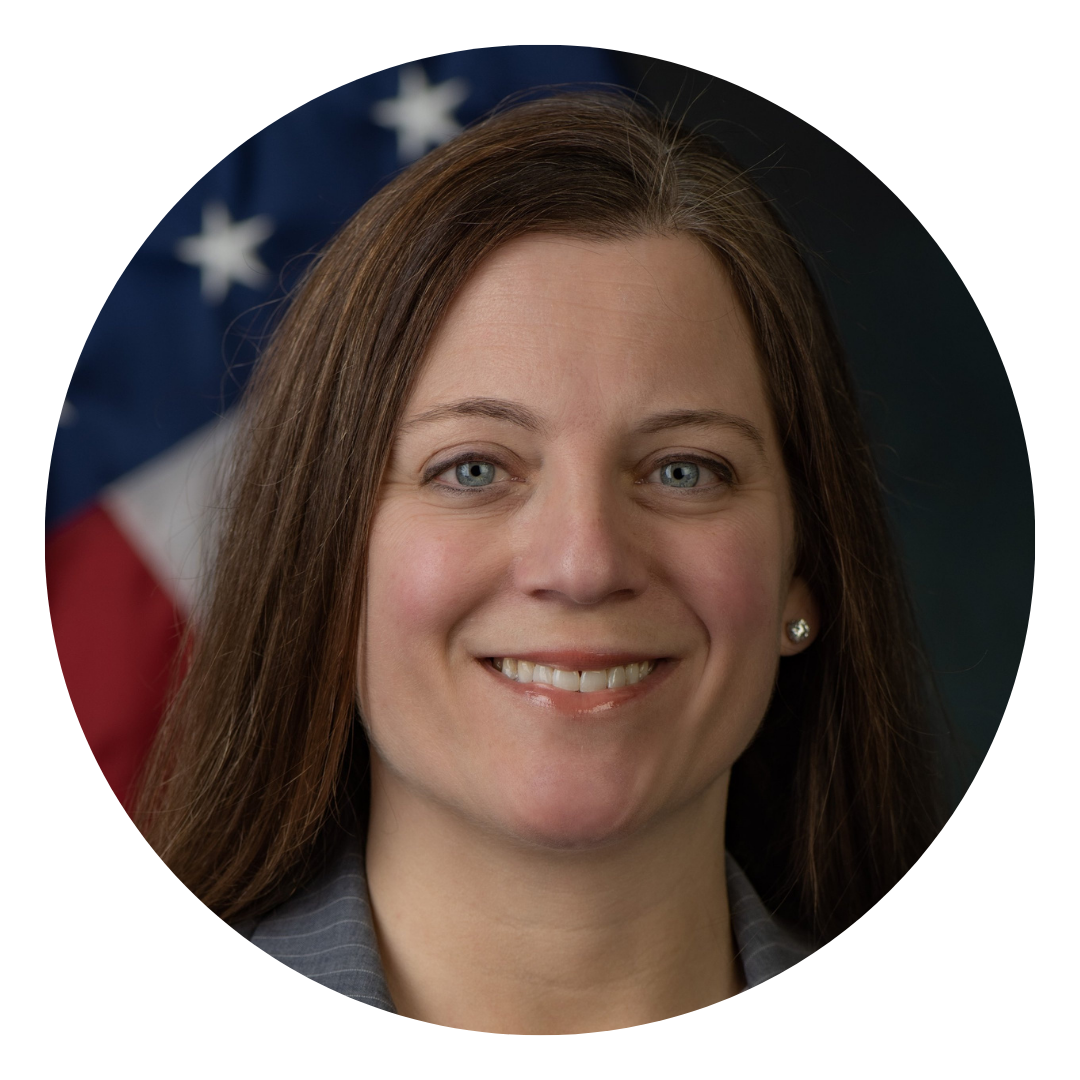On Monday, May 20, 2024, the Massive Data Institute and Data Science for Public Policy MS Degree program of the McCourt School of Public Policy will host an event on “AI Innovation in the Public Sector”. This event will convene students, policymakers, researchers, and industry experts to delve into the dynamic and complex role of AI in public policy. Our expert panels, including some of the first federal government officials tasked with AI implementation, will explore critical questions like: What role can AI play within government workflows, specifically Large Language Models (LLMs)? What is the current state of adoption, particularly in the House and Executive Branch? What guardrails are essential to ensure ethical and secure usage? How will the private sector adapt, and what will the future vendor landscape look like?
Join us in the new McCourt School of Public Policy building on Georgetown University’s Downtown campus, 125 E Street NW, Room 620, from 4:00-6:30 PM, followed by a reception. This event is supported by a grant from Georgetown University’s Initiative for Pedagogical Applications of AI. (Chatham House Rules will be in effect.)
AI Innovation in the Public Sector
Monday, May 20, 2024
4:00-6:30pm
125 E Street NW McCourt School of Public Policy Building, Room 620
The panel discussion will be followed by a reception with the panelists. Seating is limited!
Meet the panelists
Panel Session 1: AI Innovation in Government

Victoria Houed, Director of AI Policy and Strategy, Department of Commerce
Victoria Houed (she/her) is an engineer turned policy entrepreneur who has dedicated her career to improving the tech policy ecosystem and government modernization. She is currently the director of AI policy and strategy at the U.S. Department of Commerce and senior advisor at the POPVOX Foundation. She was previously a manager at Schmidt Futures where she funded key science and technology policy initiatives and educated relevant stakeholders on how to best advocate for their policy ideas in the legislative and executive branches. Before joining Schmidt Futures, Houed worked as a TechCongress congressional innovation fellow for former House Speaker Nancy Pelosi where she supported Pelosi during the COVID crisis on all things technology (including broadband, disinformation, antitrust and more). Houed is participating in her personal capacity.

Jessica Smith, Committee on House Administration —Artificial Intelligence Strategy
Jessica Smith is a Government Accountability Office Detailee for the Committee on House Administration. Jess is an experienced federal leader who focuses on science & tech policy and legislative branch oversight. Jess is currently detailed to the House of Representatives, where she has been making sure the House’s first steps toward artificial intelligence use cases are on solid footing.
Panel Session 2: AI Innovation in Public Policy

Amen Ra Mashariki, Ph.D., Director of AI and Data Strategies, Bezos Earth Fund
Amen Ra Mashariki (he/him) is the Director of AI and Data Strategies at the Bezos Earth Fund, where he works to identify strategies and solutions that will help climate and nature organizations use AI to solve complex issues. Dr. Mashariki was previously a Senior Principal Scientist at NVIDIA where he led their global Urban AI initiatives. He was also previously the Global Director of the AI Lab at the World Resources Institute. He has also served as Head of Machine Learning at Urbint, Research Faculty at Johns Hopkins, Adjunct Faculty at NYU’s Center for Urban Science and Progress (CUSP), and Fellow at the Harvard Ash Center for Democratic Governance and Innovation.

Nick Nigro, Founder and CEO, Atlas Public Policy
Nick is the founder of Atlas Public Policy, a policy tech firm dedicated to helping businesses and policymakers make strategic decisions. Atlas provides analytical tools, dashboards, and advisory services for various sectors including transportation, energy and environmental impacts. Nick has led major research projects for public agencies, large industries, and advocacy organizations, and developed the Atlas EV Hub – a key resource for over 1,500 stakeholders in transportation electrification in the U.S.

Andrew Platt, Co-Founder & CEO, STATT
Andrew is the CEO of Statt, a leading firm specializing in automated policy and regulatory intelligence. Statt offers policy intelligence solutions enhanced by AI, utilizing a vast database comprising over 15,000 research and policy organizations, 100,000 influencers. This platform enables users to efficiently search, track, and analyze policy issues, industry trends, and influential figures. Andrew previously led policy for a venture-backed fintech company pioneering a pay-for-success financing model for workforce development. Prior to joining the private sector, Andrew was a Democratic state legislator in Maryland and a staffer for a U.S. House Democratic leadership office.

Martelle Esposito, Partnerships and Evaluation Manager, Nava
Martelle Esposito works at the intersection of public health, public policy, and design with a focus on creating healthier communities at Nava. Her experience includes lobbying for nutritious food access for moms and babies, leading a CDC-funded project to enhance food environments across 31 communities, and managing the nutrition services innovation lab at Johns Hopkins Bloomberg School of Public Health. Currently, she is a key link between product development teams and external partners at Nava PBC, where she co-leads Nava Labs. Nava is a public benefit corporation working to radically improve how government serves people. With a strong research practice and a depth of experience scaling digital services, Nava helps more than sixty million people access critical government services.
Event Information
Registration: https://bit.ly/AIinthePublicSector
Accommodations: This event is wheelchair accessible. Accommodation requests related to a disability should be made by May 15, 2024 to mdiresearch@georgetown.edu. A good faith effort will be made to fulfill requests made after May 15th.
Transportation: The McCourt School is accessible for faculty, staff, students and visitors through many convenient transportation options, including our free university shuttle, public transportation, bicycling, carsharing and other means. Learn more about transportation options here. (new window )
Taxi / Ridesharing: The recommended drop-off location is at 125 E Street NW, Washington DC, 20001. Please inform your driver that your destination is the McCourt School of Public Policy. Additional information on taxi / ride sharing is available here. (new window) WMATA/Metro: accessible via Judiciary Square and Union Station
About the EIDC: The Environmental Data Impact Collaborative at Georgetown University’s Massive Data Institute at the McCourt School of Public Policy enables researchers, community groups, and policymakers to analyze and visualize data in ways that help them make environmental policy more effective and just.
About the Massive Data Institute (MDI): At Georgetown’s McCourt School of Public Policy, the Massive Data Institute (MDI) is an interdisciplinary research institute that connects experts across computer science, data science, public health, public policy, and social science to tackle societal scale issues and impact public policy in ways that improves people’s lives through responsible evidence-based research. For more information on MDI, please visit https://mdi.georgetown.edu/
About the Data Science for Public Policy Program (DSPP): The DSPP M.S. degree merges innovative computing and statistical techniques with a passion for making a difference. By studying at Georgetown University in the heart of Washington, DC, where global and U.S. policy is made, students gain high-demand quantitative skills and a deeper understanding of how data can improve policy outcomes. For more information on DSPP, please visit https://mccourt.georgetown.edu/master-of-science-in-data-science-for-public-policy/

